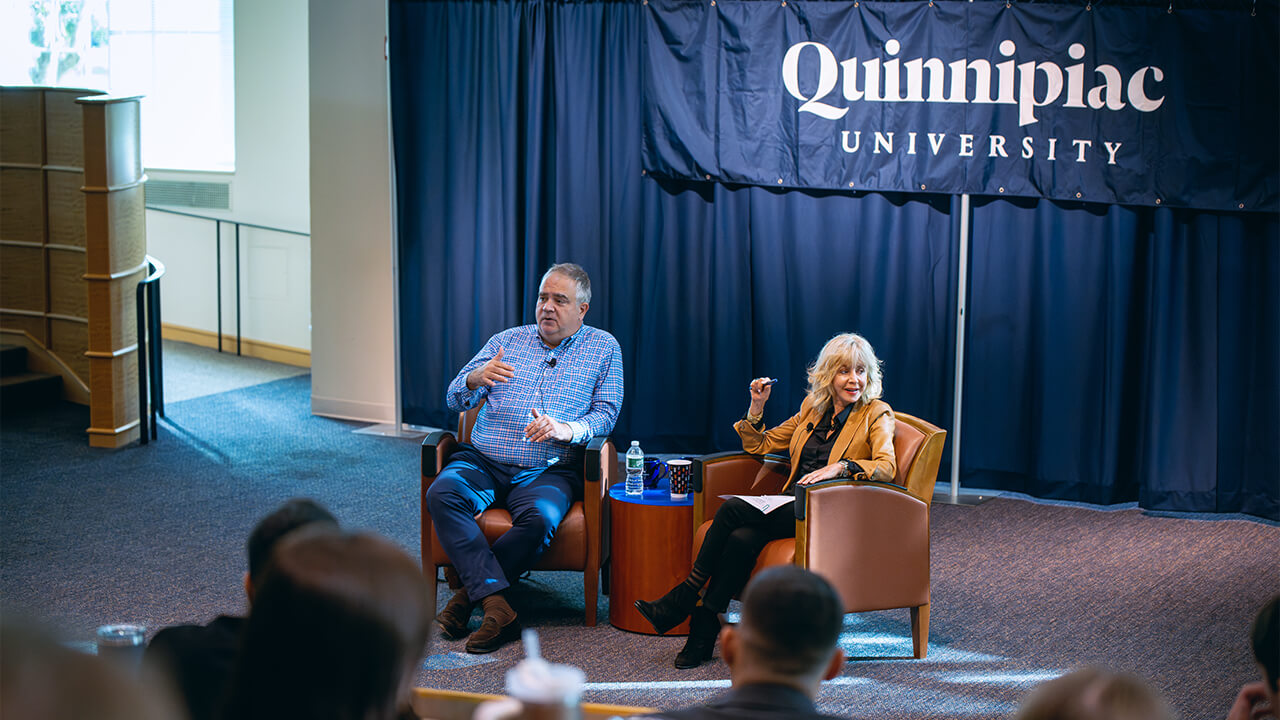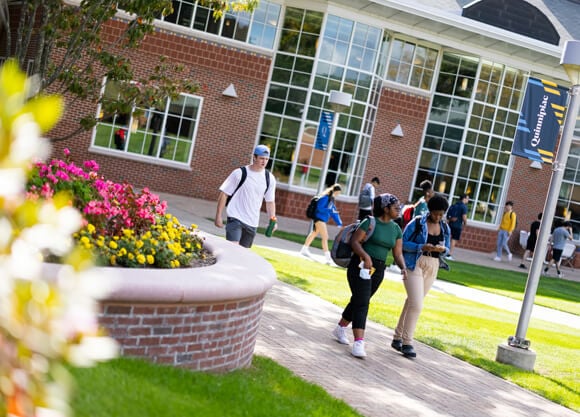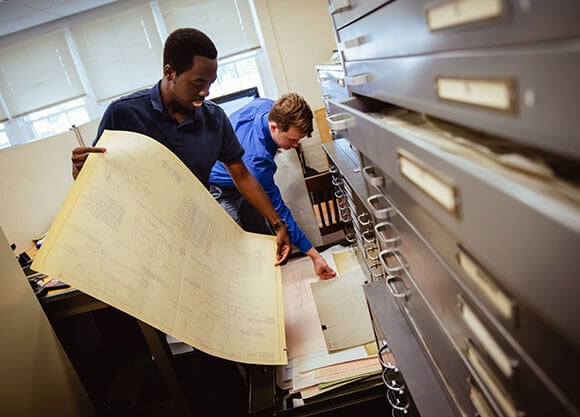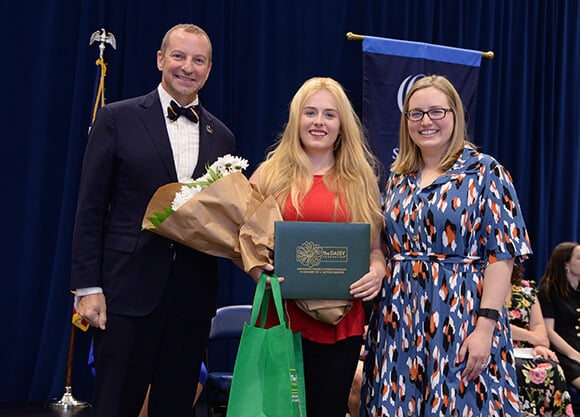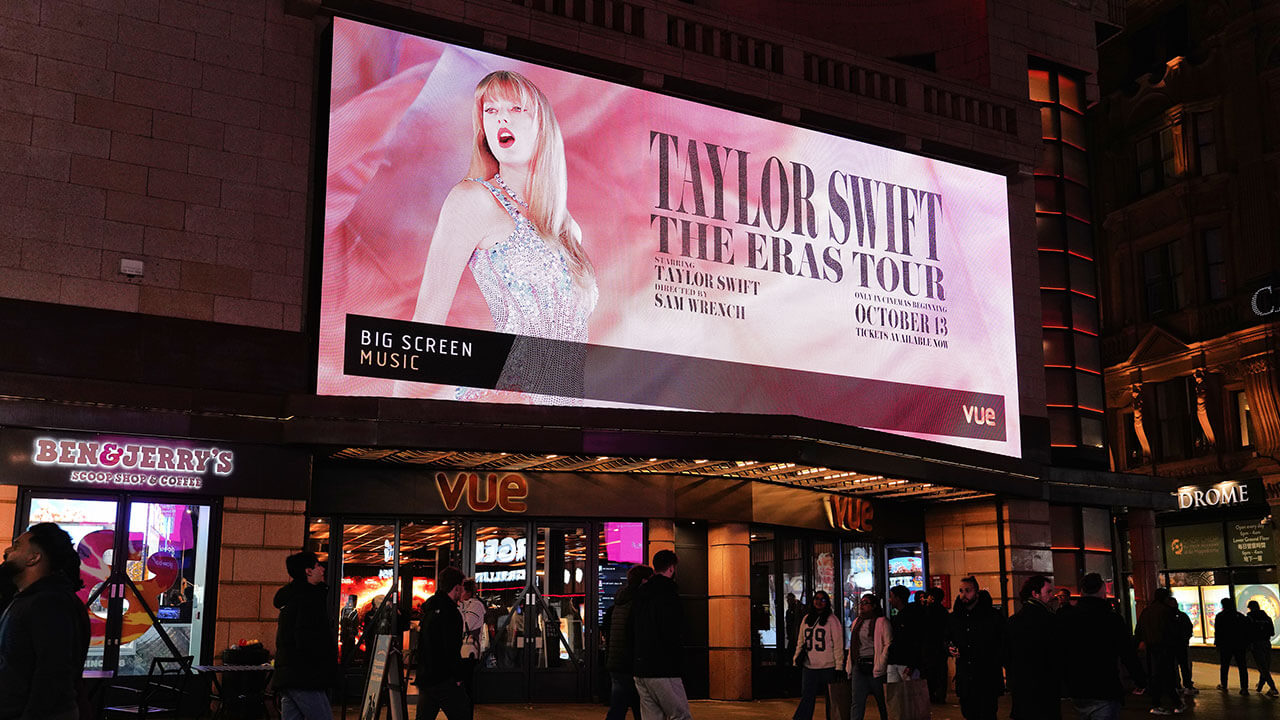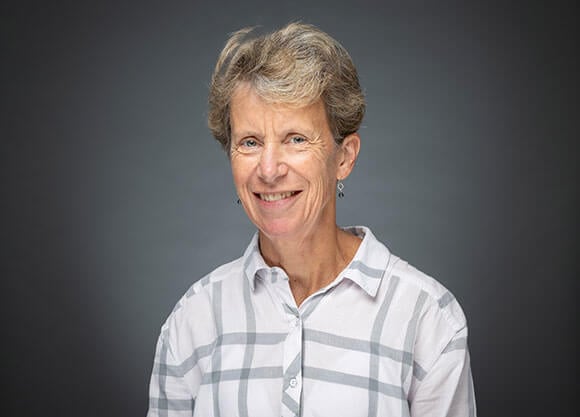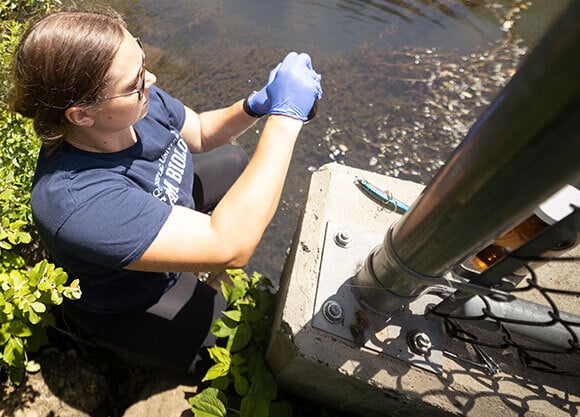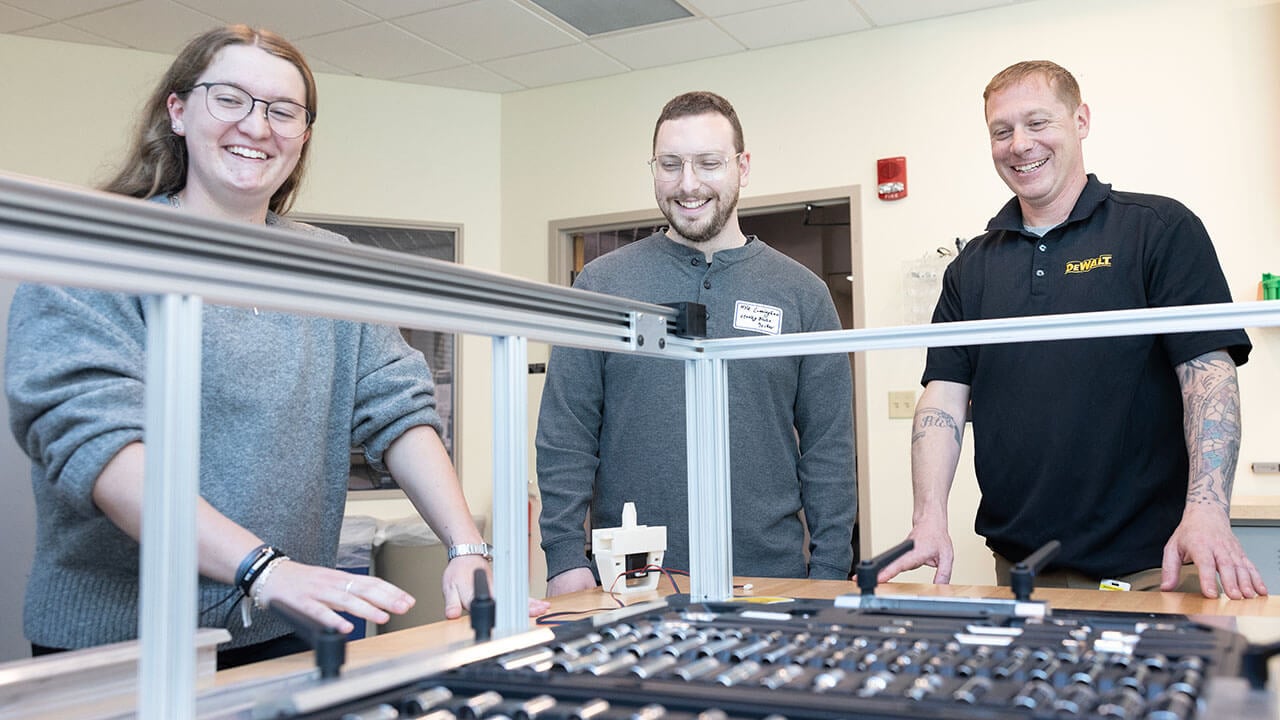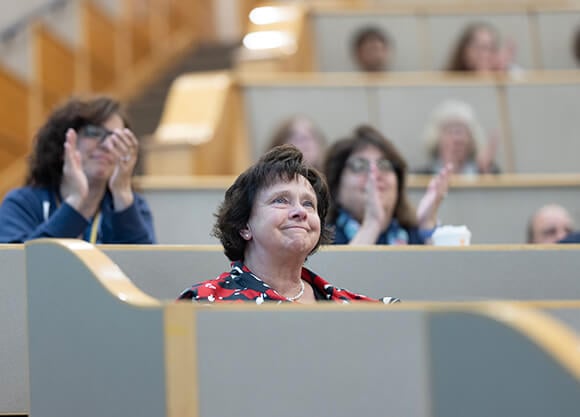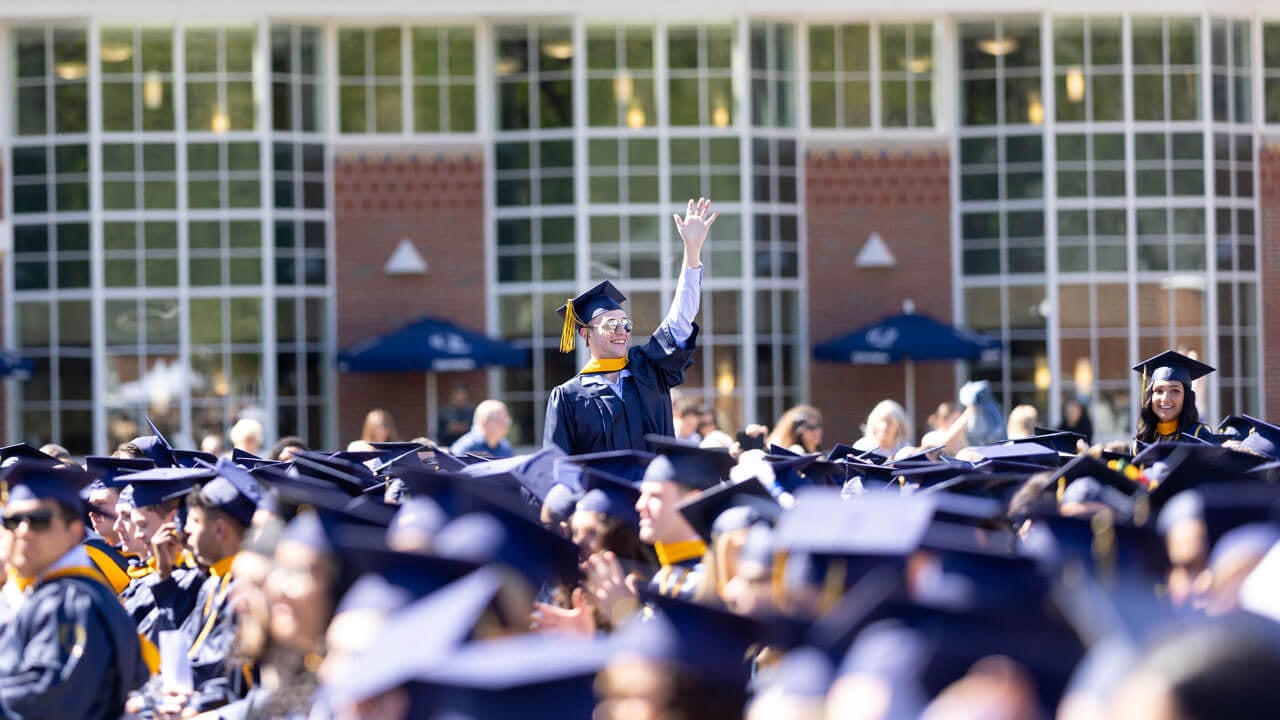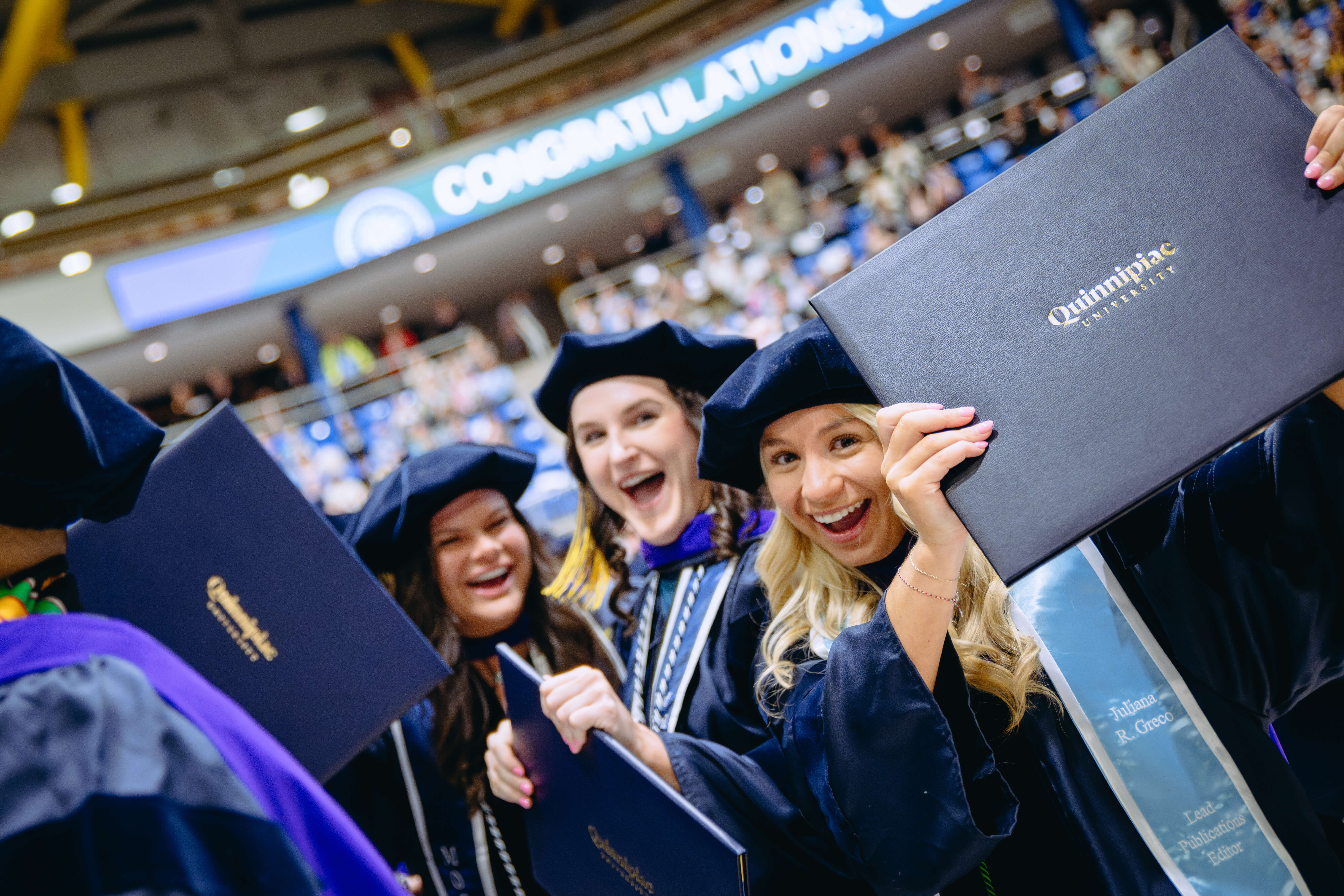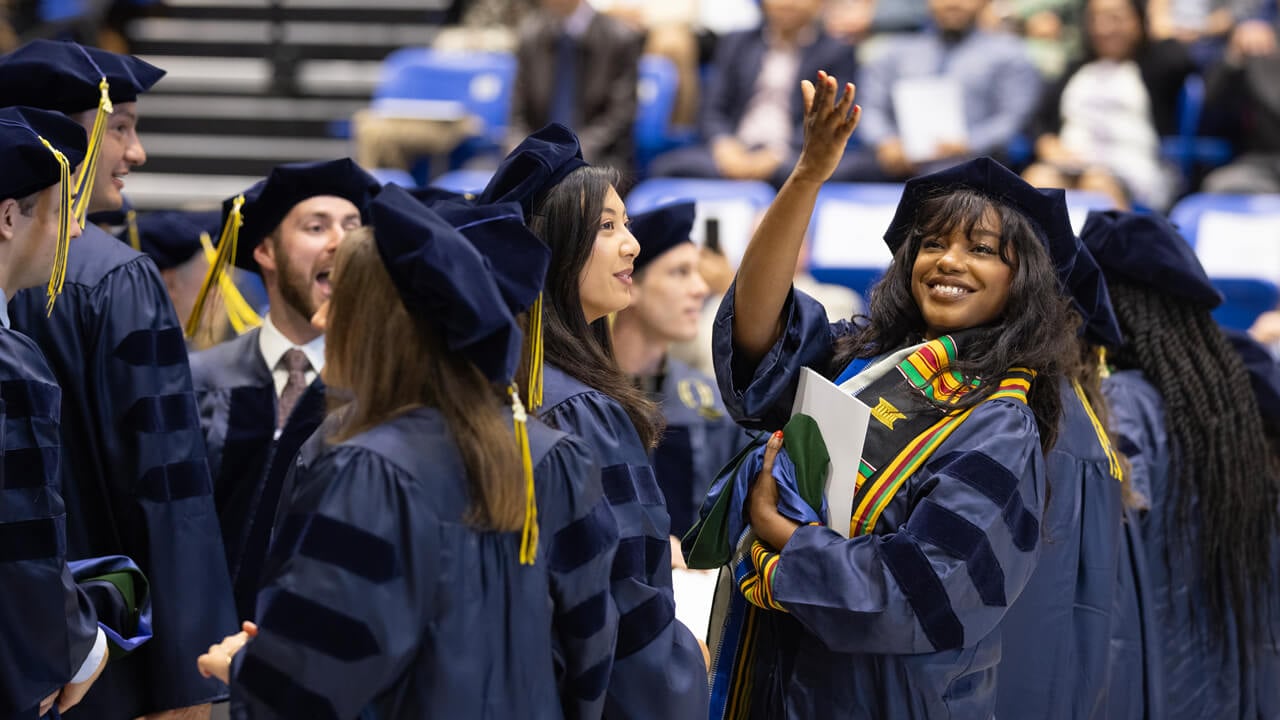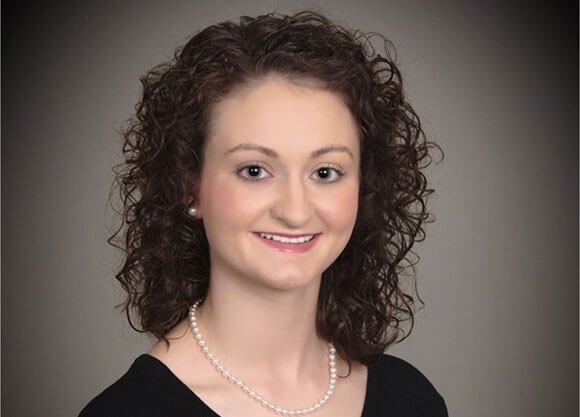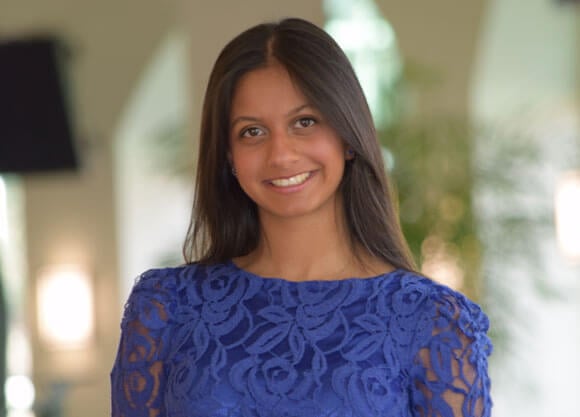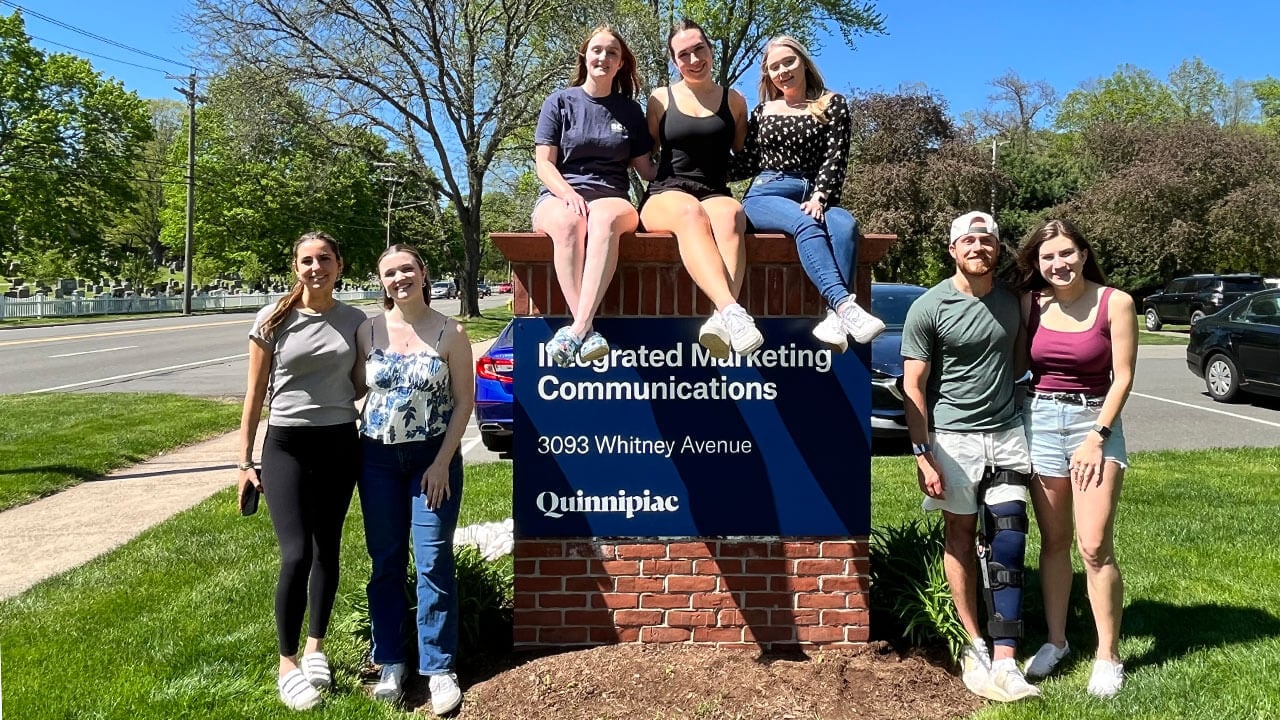
It wasn’t necessarily what he saw himself doing while he was studying at the University of Bath in England, but Hayes was hooked.
“I loved being around people, I loved the smell of the jet fuel, I loved the whole operation,” Hayes recalled amid a fireside chat with President Judy Olian in front of a rapt audience at the Mount Carmel Auditorium on Tuesday afternoon. “And so I decided to just keep trying different jobs, working my way around the industry and building my knowledge of it.”
The British-born Hayes, who took over as CEO of JetBlue in 2015 after serving as the company’s executive vice president and chief commercial officer from 2008-2014, shared his vision for how the future of the aviation industry could be shaped by emerging technology and the current business climate. He even gave his candid thoughts on JetBlue’s ongoing legal battle with the Department of Justice over its plans to acquire Spirit, another budget airline.
Consolidation has reshaped the air travel business over the past two decades, during which JetBlue emerged as a more affordable alternative to the Big Four airlines: Delta, United, American and Southwest. Those legacy brands still account for close to 80% of the market share, with JetBlue vying to become the fifth-largest with approximately 8%.
“The industry has to be sustainable, right?” Hayes said. “We expect to lose money this quarter. Spirit has said it's going to lose money this quarter. A lot of these large airlines are going to make money. So at the end of the day, you’ve got to have a sustainable business. By bringing together JetBlue and Spirit, not only do we believe we’re going to have a much better impact on the consumer, we’d also create a platform for both airlines to be much more successful.”
JetBlue — currently the sixth-largest North American airline in terms of passengers carried with about 40 million and a fleet size that ranks eighth with 270 — has been a market disruptor since its operational debut in 2000. The company’s willingness to provide efficient, consumer-friendly airfare while offering free Wi-Fi and other amenities has caused the larger, more profitable airlines to alter their business practices, Hayes said.
“I’m going to sound a little bit arrogant,” he said, “but I think the reason some of our competitors offer free TV is because we do. I think the reason they’re trying to make Wi-Fi free is because we’ve offered free Wi-Fi for 10 years. We’re the reason bigger airlines are planning to put snacks back into their offerings in coach, because we’ve had them for 20 years. And so I do believe we are singularly responsible, as small as we are, for raising the bar for what people get. We’re going to continue to do that.”
In light of JetBlue’s recent investment in Universal Hydrogen, a Los Angeles-based company that’s attempting to decarbonize the industry by developing alternative fuel sources, Olian asked about the eventuality of electric airplanes. Hayes chuckled as he pondered a future with pilot-less planes, a prospect that’s still many decades away in his estimation.
But he did suggest that artificial intelligence could make it easier to detect real-time weather patterns, guiding the in-flight decisions of pilots and engineers and perhaps keeping fewer flights grounded for lengthy delays.
Hayes also reflected on the COVID-19 pandemic, a time in which JetBlue managed to not furlough a single employee despite the unprecedented levels of uncertainty facing the travel industry. Aviation is showing signs of normalizing in a post-pandemic environment, Hayes said, but business travel revenue likely won’t return to its previous levels, and that’s owing to the way companies have adapted digitally.
In introducing Hayes and Olian to a crowd of about 350 students, staff and faculty, Business School Dean Holly Raider noted the relative youth of the aviation industry at 110 years old. She also pointed out Hayes’ academic background — he received a bachelor’s degree and a master’s in engineering from the University of Bath.
“I made that point because all too often I'm reminding students that your majors can take you in many different places, and I hope that we have some engineers in the room today as well who will be inspired,” Raider said.
Olian closed with a question about the steps Hayes took as a young professional that put him on the path to his future.
“Follow your passion,” Hayes said. “Get to know yourself. Be curious. And get to know your industry.”
The event was the latest entry in The Way Forward, a presidential speaker series hosted by Olian and designed to drive conversation about complex issues related to economics, healthcare, social justice and more.
Previous guests include Connecticut Gov. Ned Lamont; U.S. Senator Chris Murphy; Connecticut Secretary of State Denise Merrill; Steven Sorrells, vice president of sales for Pfizer; Dr. David Feinberg, Google Health’s vice president; and Matt Murray, editor-in-chief of the Wall Street Journal.
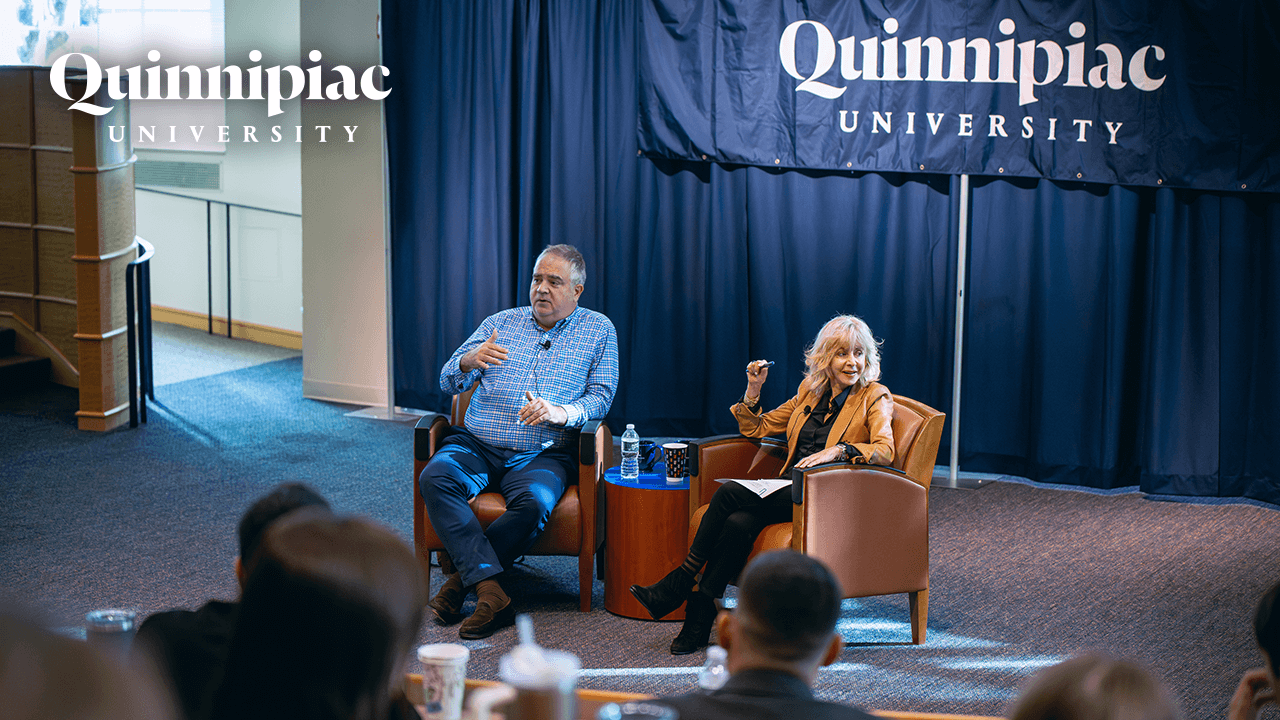
In this Article
Stay in the Loop
Quinnipiac Today is your source for what's happening throughout #BobcatNation. Sign up for our weekly email newsletter to be among the first to know about news, events and members of our Bobcat family who are making a positive difference in our world.
Sign Up Now